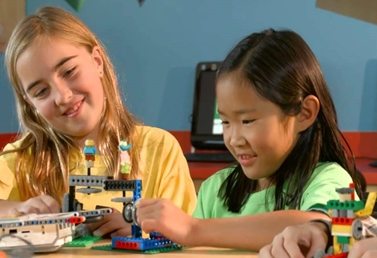All conscientious parents wish to instil a sense of confidence and independence in their children.
That isn’t always easy in the uncertain world we live in, but it should be a goal for forward-thinking mums and dads.
Studies show certain parenting techniques can be especially effective in helping children build confidence and become more outgoing regardless of their challenges and surroundings.
“A confident child displays a belief in his or her own abilities,” advises Maureen Healy in Psychology Today. “Children develop as a complex interplay between their internal and external environment … and naturally look up to their parents for guidance, feeling good and learning how to behave and believe in this world.”
Research at the University of Washington indicates many children’s self-esteem is well in place by age 5, and self-confidence developed by that age (or the lack thereof) tends to last a lifetime.
“Self-esteem appears to play a critical role in how children form various social identities,” reports study author Dario Cvencek. “Our findings underscore the importance of the first five years as a foundation for life.”
How can parents encourage confidence in their kids? Consider the following tips.
-
Talk up your child to others.
Look for opportunities to mention to others (within your child’s hearing) how wonderful he/she is. Point to specific personality traits and achievements that are admirable. Avoid complaining about them or making negative comments they might take to heart.
As young children try to discover who they are, they’ll look largely to you to form ideas about their own identities, and a few words could have a major impact.
-
Encourage them to try new things.
Kids may need to experience multiple activities before they find out what they enjoy and what they’re naturally good at. Instead of picking programs that sound fun to you, give them as many choices as possible.
Talk to them about the importance of sometimes taking a chance and “getting out of their comfort zones,” explaining that even adults often feel scared and uncertain when undertaking new activities and projects — but the payoff can be enormous.
-
Foster independence.
It can be tempting to keep children so close that they’re shielded from confidence-building experiences. Nevertheless, such experiences are needed so they understand how much they can handle on their own.
Start with small steps such as encouraging them to go through checkout lines themselves, make their own calls, place their own restaurant orders and/or complete household chores for money.
-
Show them what confidence looks like.
Your children are paying attention to how you behave even when you think they’re absorbed otherwise. While it’s certainly OK to admit your flaws and to display a range of emotions, you’ll want to avoid cutting yourself down in front of them.
They need to see you tackling new adventures and social situations, interacting with others in ways that are friendly and open and reacting appropriately to life’s less-pleasant situations.
-
Consider role playing.
Teach your kids to be prepared in various social situations by practising the typical conversations they’ll be handling in their lives. Explain that even adults sometimes struggle with what to say, and it’s OK to be uneasy when meeting new people and navigating new circumstances.
Walk them through some possible scenarios should help alleviate some of that uneasiness and give them language they can use.
If all goes well, your child will begin to build the confidence he needs for a happy and productive life.





